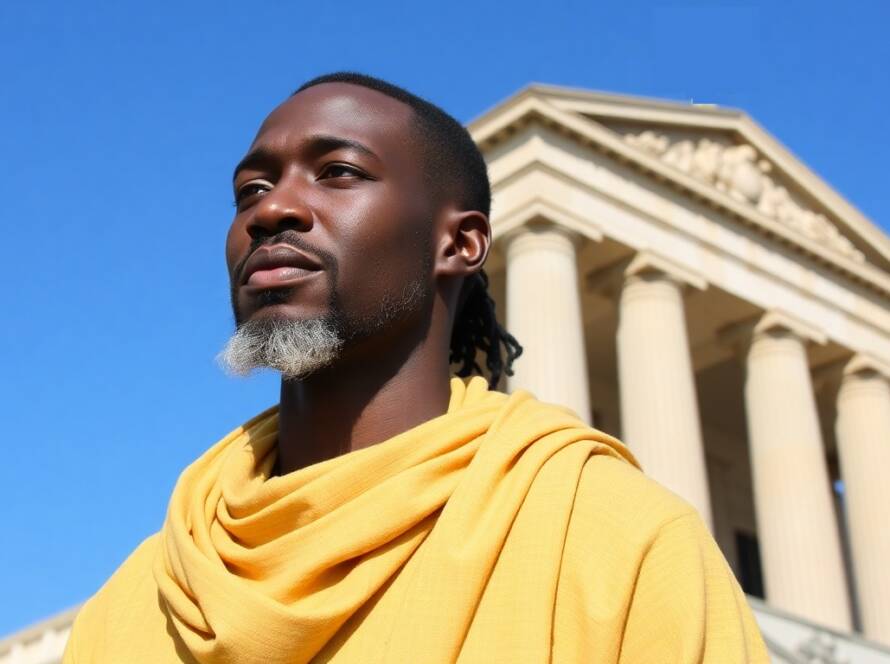Doing the math, it had to be December.
It’s noon.
A Samaritan woman goes to draw water from Jacob’s spring, a well cut into the rock less than ten feet wide that descends about a hundred feet and must have had a pool of water more than thirteen feet deep in those days. She goes at that time because it is the hottest time of day, and it is improbable that any other woman will be around the well.
She’s had five husbands, and the man she’s with now doesn’t want to marry her: she’s with him, but he’s not her husband. Perhaps her previous husbands sent her away by giving her the divorce book, which, in those days, with whatever excuse, freed both of them from any bond.
Or maybe she was widowed.
The fact is that this cohabitation had given her a bad reputation; it was something to be ashamed of (was it?), it meant being treated like a prostitute, used, calculated unworthy of being married. But life is hard for a single woman; it’s not just for economic support; loneliness is also tricky, and perhaps one thinks about choosing the lesser evil (lesser?).
And behold, while she goes with his bucket and his thoughts to draw water, she sees a man on the parapet of the well. He looks tired, but he appears vigorous. Perhaps he is one of those young men who often sit at the well to approach the girls who come to draw water.
But at this time?
-Give me a drink.
She gasped; the man spoke to her, but not arrogantly, almost asking her for a favor.
-Give me a drink.
Talk like a Jew!
Indeed, he hadn’t noticed. He dresses like a Jew!
Why does a Jew speak to her, a Samaritan herself, since there is no good relationship between them?
Jesus knows well that man’s thoughts are complicated.
Jesus knows the turmoil of the heart and mind of those who have been raped by life, of those who have had to sweat for every inch gained, of those who have been betrayed by the very one who was sure they could trust.
Jesus knows that this woman could also be many days later in Jerusalem and be, too, a drop in that stormy sea that, swollen by a diabolical wind, will break on her life, and she will cry out – Crucify him, Crucify him!
Yet, Jesus felt in his Spirit that it was “fitting for him” to leave Judea and pass through Galilee. It was the shortest, the straightest way, but it was not much frequented by the Jews because of that enmity with the Samaritans; the normal road, the most recommended, after crossing the Jordan at a point near Jericho, went up the Perea, completely avoiding the region of Samaria. So, it was not a geographical convenience, but the choice had another purpose: to speak to this Samaritan woman, who, like the Jews, was waiting for the coming of the Messiah, about the gift of God.
“Jesus said to her, ‘If you knew the gift of God, and who it is that says to you, ‘Give me a drink,’ you would have asked him yourself, and he would have given you living water.”
If you knew the gift of God and who it is, that says to you: Give me a drink.
“You take me for an ordinary wayfarer who needs a sip of water, but if you only knew who it is that is asking you for that favor, and what is the gift that, in him, God has given to men, you would be the one to ask him for the favor, and he would be more than willing to give you living water in return.”
If you knew God’s gift.
If only you had an idea of what I have prepared for you.
If only you knew what I have in store for you.
If only you knew Who I Am.
If you could understand, no force in the world can stop my hand.
If you let me into your life, into your heart, and are willing to leave your lovers, your mistakes, your solutions, and your ideas, and understand that with every effort and compromise, you can never get what I have prepared for you, I will pour out so much blessing on you that you will not know how to hold it back.
If you could put all your trust in me, there would be no limits to what you could do and receive through me.
Jesus tells her.
Jesus tells you.
For love, only for love.
© A Man Had Two Sons, by Andrew Viel

